MercoPress. South Atlantic News Agency
Stories for February 2009
-
Sunday, February 8th 2009 - 20:00 UTC
Venezuela appeals to reserves to sustain public spending

Venezuela will spend 1.65 billion US dollars from its National Development Fund in the first quarter to sustain public spending after a drop in international crude prices and the global slowdown have affected the country, said President Hugo Chavez.
-
Sunday, February 8th 2009 - 20:00 UTC
The Economist eyes at Uruguay/Argentina: profiting from virtue
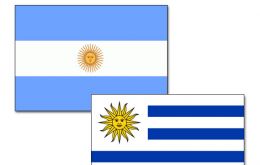
An article from The Economist (Feb. 5th), “Profiting from Virtue” praises Uruguay's prudent and orthodox economic policies, under the “leftish” government of President Tabare Vazquez and states the country is better placed to mitigate world recession than its neighbor Argentina.
-
Sunday, February 8th 2009 - 01:59 UTC
Bolivia's Morales: New constitution takes effect
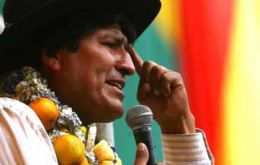
Evo Morales, Bolivia's president, has enacted a new constitution which hands greater powers to the country's indigenous majority and allows him to seek a second five-year term.
-
Saturday, February 7th 2009 - 20:00 UTC
Mrs. Kirchner believes Obama has read Perón's writings
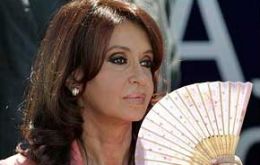
Argentine President Cristina Fernandez de Kirchner said this week she was pleased when she heard US President Barack Obama say that “trade unions are not part of the problem but part of the solution”.
-
Saturday, February 7th 2009 - 20:00 UTC
Snow storms and freezing temperatures shutdowns UK
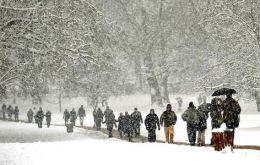
Forecasters have warned of very low temperatures overnight, after snow brought a fifth day of chaos to the UK. Road, rail and air transport was again badly affected, while hundreds of schools were again closed.
-
Saturday, February 7th 2009 - 20:00 UTC
IMF calls on G20 for more action to combat corrosive crisis
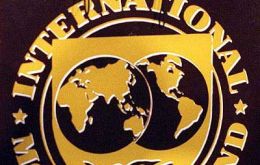
The IMF has urged the Group of Twenty (G-20) industrialized and emerging market countries to take more decisive policy action to combat the corrosive global financial and economic crisis by bolstering demand and cleaning up the financial sector.
-
Saturday, February 7th 2009 - 20:00 UTC
Reviving the damaged financial system

Restoring financial health will require a three-pronged approach, involving the continued provision of ample liquidity and term funding support from central banks, dealing promptly and aggressively with distressed assets, and recapitalizing viable institutions with public funds.
-
Saturday, February 7th 2009 - 20:00 UTC
UK manufacturing output declined 10% in twelve months

Manufacturing output declined at its fastest rate since 1981 in December, underscoring the fragile state of the UK economy, official figures show. The Office for National Statistics (ONS) said it fell 10.2% from a year earlier as recession hit the sector.
-
Saturday, February 7th 2009 - 20:00 UTC
Uruguay's wool industry exports total 282 m USD in 2008

Uruguay's wool industry exports between January 31st 2008 and February 2009 totalled 282 million US dollars which is 10.4% less that the same period a year ago, because of a 13.9% drop in wool sales and an 83.8% reduction in live sheep shipments.
-
Saturday, February 7th 2009 - 20:00 UTC
Uruguay's ruling coalition primary “nasty and foul”

One of Uruguay's ruling coalition presidential hopefuls claimed the primary campaign was turning “nasty” and could leave “deep wounds” plus mistrust and called for a “clean, respectful campaign”. He admitted that he could be the target of an inside boycott.
